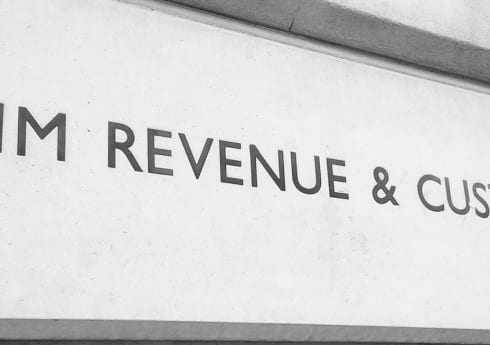Everything You Need To Know About Hybrid Company Car Tax
Cut your emissions and tax bill in one swoop with hybrid company cars. These cars are powered by petrol and electricity. While the government is slowly cutting down on the hybrid benefits to moving funding to fully electric cars, there are still many reasons to choose a hybrid company car.
One of the main benefits of choosing hybrid cars is their lower company car tax rate. Here’s everything you need to know about reducing your company car tax with hybrid cars. And can electric company cars be even better? Let’s find out.

What is hybrid company car tax?
You have to pay company car tax if you’re using the car for private as well as business use. That includes your daily commute. As hybrid cars produce less CO2 emissions, you will pay less company car tax. Electric cars pay even less.
The best hybrid cars for company car tax
Mercedes-Benz C300e
All of the AMG Line pays a very low level of company car tax. The plug-in hybrid estate car C 300 e AMG Line 9G-TRONIC PLUS cuts you back £738 a year at the 20% tax rate. The car only releases 15 g/km of CO2. The plug-in hybrid has a range of 62 miles on its electric battery. If you want the best of both worlds, the C300e is a nice pick.
Toyota Prius
The Toyota Prius 1.8 VVT-i Active Hybrid Auto only releases 94 g/km of CO2. The Toyota Prius is an automatic car. The tax rate is higher than the Mercedes-Benz C300e because of its higher emissions. You’re looking at a yearly hybrid company car tax rate of at least £1,136 at the 20% tax rate, but it can go up to £1,525 for the Business Edition Plus. If you want to pay as little tax as possible, keep things simple and avoid the fancy upgrades for this one.
With average miles per gallon (MPG) of 67.3, the Toyota Prius is fairly efficient when you’re using petrol. But this car shines when you use it as a hybrid. Stick to electric, then switch over to petrol as needed to get the most out of this car.
BMW 330e Pro Sport
This 8-speed automatic car pays one of the lowest rates of hybrid company car tax. The BMW only releases 30 g/km of CO2, so you only have to pay £991 a year on the 20% tax rate. This car does have a higher price tag than others on this list, but at least in the long run, you’ll save on tax compared to other hybrids.
How to calculate company car tax
Hybrid company car tax is calculated on the value of the car. Long story short, thanks to lower CO2 emissions than diesel and petrol cars, hybrid cars pay a lower rate of company car tax. This is sometimes three to four bands lower than their conventional fuel siblings.
There are a couple of things to keep in mind:
- Sole traders have to pay company car tax
- The less CO2 you emit, the lower your tax band
- If your company car emits 1 to 50g/km CO2, you will pay less tax
- Payments for private use must be declared and will affect your tax band
- One-off capital contributions by the employee to the car reduce the tax rate for that employee
- Tax rates will be higher if you’re in the 40% bracket and not the 20%
You can calculate your company car tax rate by using this formula:
The P11d value of the car X Appropriate value of car Tax BIK rate/ percentage
Working out exactly how much you’ll pay for the hybrid company car tax is pretty complicated if you don’t know the P11d value.
iCompario tip:
We really recommend using the hybrid company car tax calculator from the UK government unless you want a headache! This gives you the most accurate rate.
What is BIK?
BIK (Benefit-In-Kind) is a taxable rate based on your income tax. The government changes the BIK rates every 1-2 financial years, so keep your eyes peeled for updates.
BIK rates in England, Wales, and Northern Ireland
- 20%
- 40%
- 45%
HMRC adds 4% to your BIK rate based on the CO2 emissions of the car. The best way to avoid that 4% is by getting a plug-in hybrid or electric car to reduce your rate even more.
BIK rates in Scotland
- 19%
- 20%
- 21%
- 41%
- 46%
Should I choose an electric or hybrid company car?
Hybrid cars have had a boost in popularity thanks to government incentives and tax relief. They tend to have a high range and fuel efficiency, without the high CO2 emissions of diesel cars. Many drivers prefer them to electric because of range anxiety.
But the tax relief for hybrid cars isn’t as rosy as it used to be. As fully electric cars catch up and the government looks to phase out petrol, companies are weighing up the pros and cons of electric company cars.
|
Electric |
Hybrid |
| Lowest possible company car tax rates | Lower tax band rates possible, but never as low as electric |
| Range varies depending on model |
Longer average range |
| Requires charging | Not all hybrids are plug-in types that require charging |
| Lower emissions | Higher emissions |
| Low maintenance | Higher maintenance needs |
iCompario tip:
If your company offers a hybrid car scheme, you will save money compared to your typical petrol or diesel car thanks to the lower hybrid company car tax. But if you can choose electricity, it’s well worth considering for long term environmental and financial reasons.
Why choose a plug-in car?
There are many types of hybrid vehicles. Hybrid plug-in cars can be charged up like an electric car. When you have a plug-in car, you can benefit from the many government schemes to help you install electric charging points. These reduce the cost of installation, so you can charge up at work or at home.

iCompario tip:
One factor holding businesses back from getting plug-in company cars is worry about charging. But the UK has many charging points. One way to access many charging point networks is to get a charge card. Using your charge card and phone app, you can control how long your car charges and pay for your charging completely contactless.
How to get a car with low company car tax rates
Purchasing isn’t the only way to get a vehicle with a low hybrid company car tax rate There are ways to get a low tax company car without buying the car outright. The main three ways to do this are vehicle hire, salary sacrifice, and cash allowance.
Salary sacrifice
Salary sacrifice schemes mean an employee willingly gives up a fraction of a pre-tax salary in return for a company car. You will probably lose less money this way than buying the car upfront from a dealer, though it will vary depending on what car you get.
Benefits for employees
While the tax benefits of salary sacrifice have decreased since the government made changes in 2017, there are still some company cars that offer excellent benefits. If you get an ultra-low emission vehicle or electric car on the scheme, you’ll avoid paying a significant chunk of tax.
Many of these schemes forgo deposits, so you can jump right into purchasing.
Benefits for employers
The company car salary sacrifice scheme is one of the best ways for companies to avoid or reduce the hybrid company car tax. Unlike giving your employees a cash allowance, you are in full control over which cars are purchased. You can choose cars that are on a lower company car tax band, including electric and hybrid cars.
Company car allowance
Employers can offer a cash sum to help employees buy a company car in an opt-in scheme. The cash is given as a monthly allowance of a few hundred pounds, usually add to their salary payments.
Benefits for employees
This option gives your employees a lot of flexibility. The employee is free to buy or lease whichever car they’d like. Employers can encourage certain types (ultra-low emissions and electric) by offering additional benefits.
Benefits for employers
Many employers prefer this option due to updates in the company car tax rules from the UK government. There aren’t as many tax benefits as there used to be for employers on the scheme. Giving your employees a cash allowance means they will pay tax on it as their salary, not as BIK.
The cash option is a hassle-free scheme for employers. Your employee will be responsible for the costs and maintenance of the car. This option is good for businesses that do not want to manage a fleet of company cars.
Hiring
Vehicle hire is the most flexible way of getting low hybrid company car tax vehicles. It is also one of the most affordable for employers and employees alike with business use rentals starting at £85.00 per week for a car-derived van at 10,000 miles per annum.
Benefits for employees
Your employer chooses how long your contract lasts—short or long term—for more control. Unlike purchasing or even salary sacrifice, you’re not locked into the car forever. Just like a phone contract, the business can choose to upgrade.
Unlike cash allowance, you’re not responsible for the insurance and repair costs. These are handled by the vehicle hire company.
Benefits for employers
Choosing which vehicles, you hire on a contract that suits your business means you have much more control over your company cars than any other option to ensure lower hybrid company car tax rates.
Company tax rules are regularly updated, and the government seems to be pushing more incentives toward electric vehicles. Vehicle hire gives you more flexibility to prepare for these changes. If you want to ensure your company pays lower tax rates and is future-proof, vehicle hire is an excellent solution.



